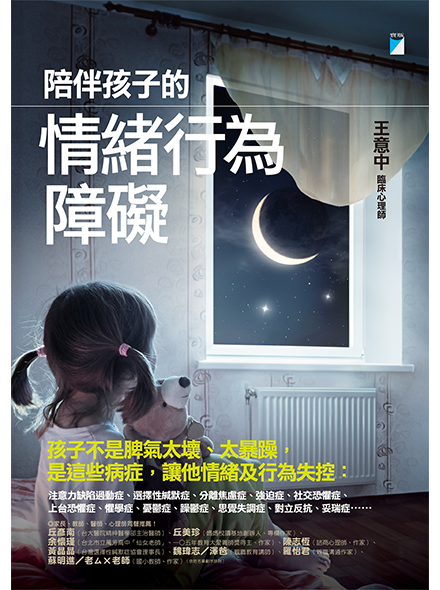Children who “can’t sit still”, “can’t make friends”, “won’t shut up” or won’t open their mouths might be suffering from real behavioral or emotional conditions. In this book, clinical psychologist Wang Yi-Chung teaches parents and teachers how to recognize these difficulties in child behavior and offers practical methods for dealing with them productively and with sympathy.
How many parents and teachers have found themselves faced with extreme child behaviors that no one – not even the child – seems able to control or ameliorate? Those children are frequently labeled “the kid who can’t sit still”, “the shy kid”, “the kid with no volume control”, and made subject to the resentment of their classmates, while teachers and parents try to correct their behavior via increasingly severe methods.
Clinical psychologist Wang Yi-Chung wants us to understand that in situations like these, we often fail to recognize that the problematic children can themselves be victims. Wang identifies a host of clinical psychological conditions that manifest as common disruptive behaviors and over which the child has no control. Instead of opposing the child every time the behavior occurs, Wang suggests, we need to communicate with the child clearly in order to assure they can recognize their own symptoms and triggers, and thereby maximize their own self-control.
By underscoring his clinical expertise with a deep sympathy for his subject, Wang reminds that, generally speaking, everyone involved in a child’s problematic behavioral situation wants to make things better, including and especially the child herself. His analyses and suggested solutions point everyone toward collaborative solutions and away from pointless conflict.
